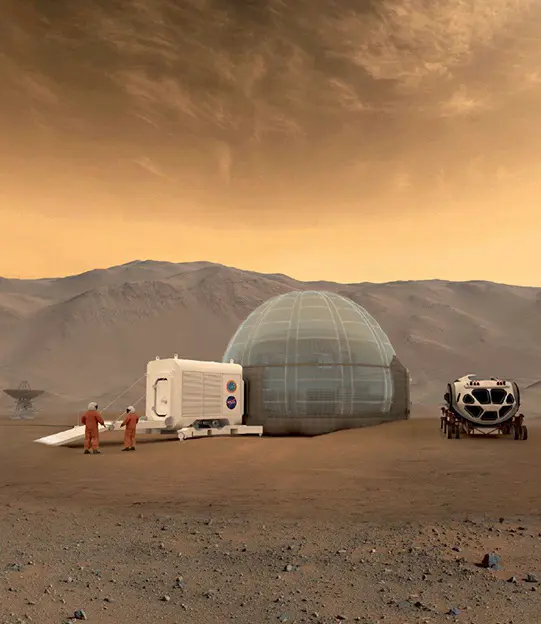The allure of Mars as the next frontier in human space exploration has captivated the imagination of scientists, engineers, and space enthusiasts alike. This red neighbor of ours, the most Earth-like planet in our solar system, presents a unique opportunity to extend our understanding of habitable worlds and the potential for life beyond Earth. With a day length similar to Earth’s, historical evidence of a warmer climate and liquid water, and seasonal polar caps, Mars beckons as a new horizon for human exploration.
Robotic missions have paved the way, but the true depth of Mars’ secrets requires human feet on its surface. The 2030s may witness the first manned missions, short-term explorations by astronauts from various space agencies or private space enterprises. But the vision extends further: by the 2050s, we might see the establishment of the first human bases, marking the beginning of permanent human presence.
These Martian settlements will not only be a testament to our technological prowess but also to our intrinsic drive to explore and expand our horizons. A diverse crew of professionals, from geologists and biologists to engineers and healthcare providers, will be essential for the success of these endeavors. The ambition of settling on Mars represents more than a scientific milestone; it embodies the human spirit’s relentless pursuit of knowledge and adventure.

